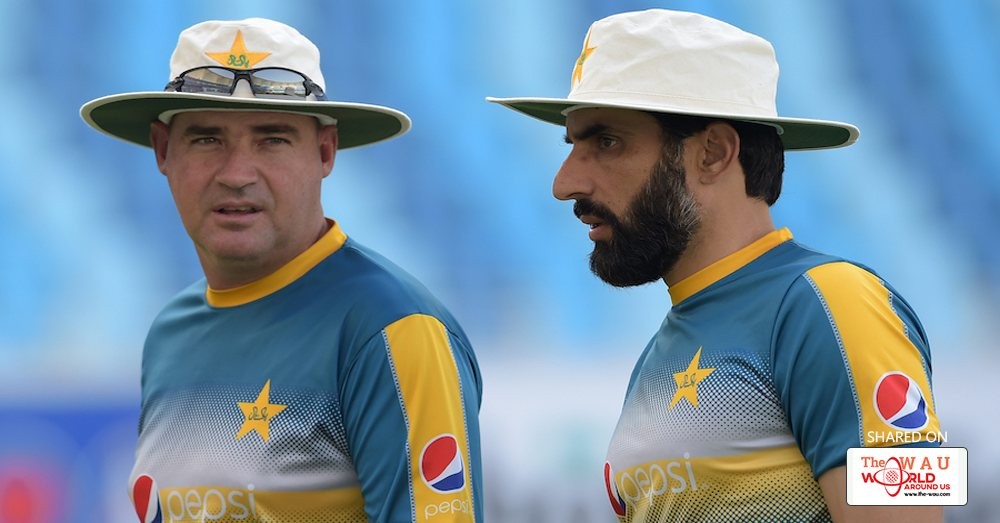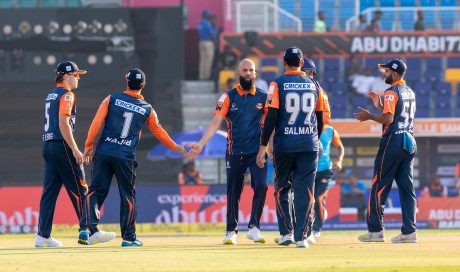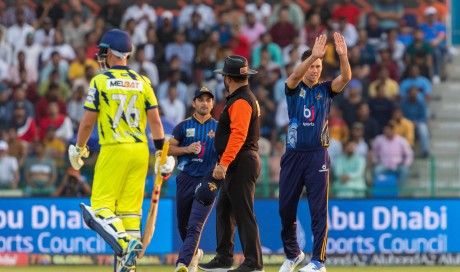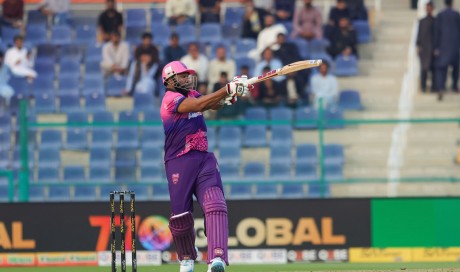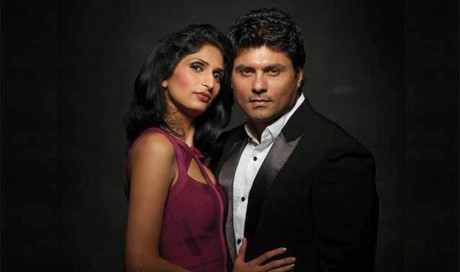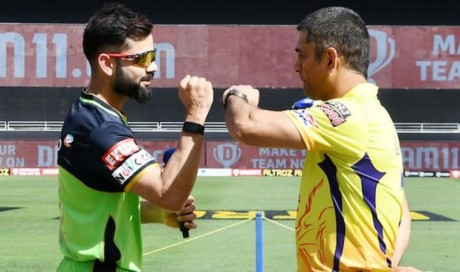That Pakistan cricket has faced a unique set of challenges over the past decade or so is not in dispute, and Mickey Arthur believes its effects on the international team were obvious when he walked into the role one year ago. Speaking nearly 12 months on from his appointment as head coach of the Pakistan national side, Arthur said that Pakistan had been playing cricket "that belonged in the 20th century".
"This isn't just dressing room speak," Arthur said. "I've told the players that we were playing cricket that belonged in the 20th century. We hadn't embraced the new modern game yet, and that was for a number of reasons, like not playing at home, or [not] having the exposure to the IPL that the rest of the world has had. So there were a lot of mitigating factors, but the fact is, if we've got to compete with them, we have to start embracing the modern trend."
One aspect of the modern game that remains absent in Pakistan cricket is the presence of power hitters. Their scarcity has been noticeable in the Pakistan side, both at the top and tail of the innings, with Pakistan's ODI run rate in the first and last Powerplay the lowest of all Full Members, save Zimbabwe. Arthur acknowledged it was not something that could be coached into players overnight, and such players needed to be developed and groomed over time.
"It [lack of power hitters] is a worry. When we get on good wickets, we can't match the other countries. In Australia, I felt we always started 20-30 runs behind them because they could maximise the last ten overs. Teams are getting 100 runs in the last ten overs now. We're getting 70, at best. We didn't get a run-a-ball in the last five overs the other day in a T20 [against West Indies]. That's not good enough; that's not going to win us games. We don't have the ability to take on the power players, which is so disappointing, because we did with Sharjeel [Khan], so to lose him is a massive blow.
"But along those lines, those are things we have to get better at, and it's not going to happen overnight. You're not going to wake up one morning and become a power hitter. We're training it; we've got drills and techniques that we're putting into play. Hopefully, all that comes to fruition, because we've got two years till the World Cup, and in the World Cup, we've got to be as good as we can possibly be."

Arthur also talked about the cultural challenges of managing an Asian team for the first time, saying he was fully prepared to embrace the culture around Pakistan's cricket. He clarified, however, that accepting the culture was not tantamount to tolerating mediocrity, and that he didn't believe his role as coach could be boiled down to a win-loss ratio, stressing that his main priority was setting up a professional structure in Pakistan's cricket, with fitness at the core of their preparation.
"Comfort zones are not tolerated within our environment anymore. We've tried to push the players, we tried to challenge the players, take them to limits they haven't been before in terms of fitness and preparation.
"I like to think that when people look at what happened for the last one year, they look at structure. You are always going to be judged as coach on win-loss ratio but for me it's a lot more than that. It's about the environment, it's about the standards and it's about challenging players. It's about not tolerating mediocrity and that's the stuff I would love to leave behind so the next coach that came in would come into a structure that functions. Players know what standards are and live up to those standards. Otherwise I'm wasting my time. Hopefully that's going to be my legacy - a thoroughly professional structure."
With Misbah-ul-Haq and Younis Khan having announced that the Test series in the West Indies will be their last, Pakistan look set for a period of transition without two of their stalwarts. While that might be intimidating for some, Arthur said he was excited by the opportunity of managing a new team, pointing to his time with the South African national side, where he oversaw a young team emerge as a unit that is presently ranked No. 2 and No. 1 in Tests and ODIs.
"That's what you live for as a coach. I've been lucky in my team with South Africa, where we inherited a team with a couple of senior players, and we put in players like [AB] de Villiers, [Morne] Morkel, [JP] Duminy, [Dale] Steyn. To see them grow and get better is the most fulfilling thing that can happen for you as a coach. I'm hoping the same happens with this Pakistan team, and I'm incredibly excited about the future."
Share This Post

